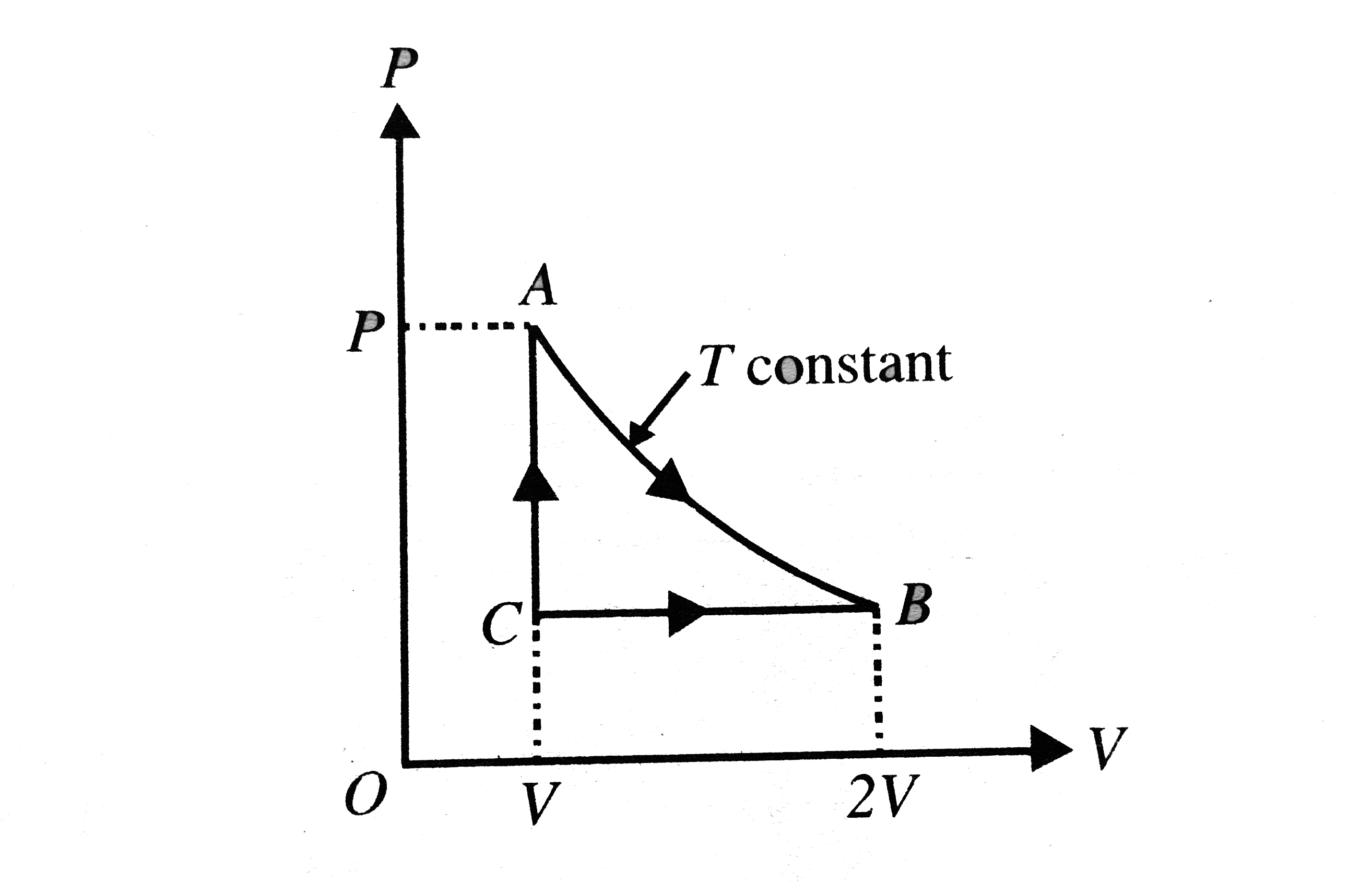If a gas expands at constant temperature, it indicates that
kinetic energy of molecules remains the same
number of the molecules of gas increases
kinetic energy of molecules decreases
pressure of the gas increases
The correct Answer is:A
To solve the question regarding the behavior of a gas that expands at constant temperature, we can analyze the situation step by step.
1. Understanding Constant Temperature Expansion:
- When a gas expands at constant temperature, it is undergoing an isothermal process. In this process, the temperature (T) of the gas does not change.
2. Applying Boyle's Law:
- According to Boyle's Law, for a given amount of gas at constant temperature, the product of pressure (P) and volume (V) is constant. This can be expressed as:
PV=constant
- Therefore, if the volume (V) increases during the expansion, the pressure (P) must decrease to maintain the equality.
3. Analyzing Pressure and Volume Relationship:
- Since the gas is expanding, we can conclude that:
- As V increases, P must decrease.
- This indicates an inverse relationship between pressure and volume when temperature is held constant.
4. Kinetic Energy Consideration:
- The average kinetic energy of gas molecules is directly proportional to the temperature of the gas. Since the temperature remains constant during the isothermal expansion, the average kinetic energy of the molecules also remains constant.
- The formula for the average kinetic energy (KE) of gas molecules is given by:
KE=32kBT
where kB is the Boltzmann constant and T is the absolute temperature.
5. Conclusion:
- Therefore, during the isothermal expansion of a gas:
- The pressure decreases as the volume increases.
- The average kinetic energy of the gas molecules remains constant.
Final Answer:
If a gas expands at constant temperature, it indicates that the pressure of the gas decreases while the average kinetic energy of the molecules remains constant.
- When a gas expands at constant temperature, it is undergoing an isothermal process. In this process, the temperature (T) of the gas does not change.
- According to Boyle's Law, for a given amount of gas at constant temperature, the product of pressure (P) and volume (V) is constant. This can be expressed as:
PV=constant
- Therefore, if the volume (V) increases during the expansion, the pressure (P) must decrease to maintain the equality.
- Since the gas is expanding, we can conclude that:
- As V increases, P must decrease.
- This indicates an inverse relationship between pressure and volume when temperature is held constant.
- The average kinetic energy of gas molecules is directly proportional to the temperature of the gas. Since the temperature remains constant during the isothermal expansion, the average kinetic energy of the molecules also remains constant.
- The formula for the average kinetic energy (KE) of gas molecules is given by:
KE=32kBT
where kB is the Boltzmann constant and T is the absolute temperature.
- Therefore, during the isothermal expansion of a gas:
- The pressure decreases as the volume increases.
- The average kinetic energy of the gas molecules remains constant.
If a gas expands at constant temperature, it indicates that the pressure of the gas decreases while the average kinetic energy of the molecules remains constant.
Similar Questions
When a gas expands at constant temperature, why does the pressure decrease? Explanin it on the basis of kinetic theory of gases.
View SolutionA certain amount of water of mass m, at a temperature T2 cools.to temperature T1. The heat given out by the water is absorbed by n mole of an ideal gas. The gas expands at constant temperature T and changes its volume from Vi to Vf What is its initial volume ?
View Solution
Knowledge Check
At constant temperature, in a given mass of an ideal gas
Athe ratio of pressure and volume always remains constantBvolume always remains constantCpressure always remains constantDthe product of pressure and volume always remains constant.
If a gas is allow to expand at constant temperature,
View SolutionIf a gas is allowed to expand at constant temperature, then :
View SolutionOne mole of a gas is carried through the cycle shown in Fig. The gas expands at constant temperature T from volume V to 2V. It is them compressed to the initial volume at constant pressure and is finally brought back to its original state by heating at constant volume. Calculate the work done by the gas in complete cycle.

View SolutionIf a gas, at constant temperature and pressure expands, then its
View SolutionTwo moles of a gas at 8.21 bar and 300 K are expanded at constant temperature up to 2.73 bar against a constant pressure of 1 bar. How much work (in Latm) is done by the gas?
(neglect the sign)
View SolutionA: For a certain amount of gas, PV is always constant at constant temperature.
R: On increasing temperature PV increases for fixed amount of ideal gas.
View SolutionExpand GA
View Solution
